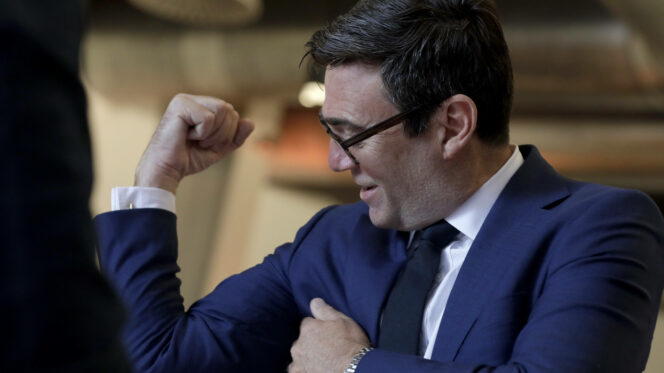Budget 2024: Keir Starmer Just Walked Right Into the Tories’ Trap
The chancellor scheduled austerity for after the election and stole a key Labour policy.
by James Meadway
6 March 2024

This was a cut-and-run budget from a government in its dying months, with no new ideas and nothing left to say – but just enough political nous to try and set some obvious bear traps for Labour. The most pressing of these is the return to austerity that Jeremy Hunt has now pencilled in for after the next election.
The chancellor announced some slight improvements to the official forecasts for growth and inflation this afternoon, but this had nothing to do with his government: the official forecasts show higher growth from higher immigration, whilst falling inflation is due to falling global energy prices. Hunt’s heavily-trailed new plan to cut 2p off national insurance contributions, meanwhile, amounts to a saving of £750 per year for MPs, but only £300 for a nurse on a starting salary
Spending increases for so-called protected departments, including healthcare and education, are not remotely close to what is needed for our public services after the challenge of Covid-19, and with an ageing and increasingly sickly population. The NHS repair bill alone, after years of neglect, comes to a jaw-dropping £10bn. The government would need to pledge £11.4bn to fix schools that are now literally crumbling away and bring the entire estate up to scratch, yet this budget actually cut planned investment spending by an extraordinary £20bn up to 2028.
For so-called unprotected departments, the situation is set to become catastrophic: Hunt has just announced cuts to essential services – like those provided by local councils and the criminal justice system – amounting to £20bn. It’s not an exaggeration to say that the state will no longer be able to provide some of the essentials of modern life if these cuts are ever implemented. Already councils including Birmingham are approaching bankruptcy, with one London borough even looking to turn off streetlights in a desperate bid to save money. Councils have seen their budgets cut by 40% since austerity began in 2010. They absolutely will not be able to bear any further cuts.
But what is Labour’s response to all this? Keir Starmer’s comments in parliament gave us a clue. “The national credit card is maxed out,” was his opening shot. Readers with long memories may shudder – these are exactly the same words former chancellor George Osborne used to justify austerity spending cuts all the way back in 2010. No doubt someone in Labour HQ thinks they are being terribly clever, “parking tanks on the Conservative’s lawn”, as the dull cliché has it.
But they absolutely are not: they are reinforcing their opponent’s lines by saying nothing of the violence being done to basic economics. There is no “national credit card” to max out: unlike you or me, the government can raise taxes and even print money to cover its spending. The Bank of England did just this during the worst of the Covid-19 crisis, in 2020. Starmer might not know any better, although he should; Rachel Reeves, who actually worked at the Bank of England, definitely does, but repeats the same rubbish anyway.
It is a little stupefying watching this play out. Knowing that Labour was intending to use the removal of non-domiciled status – a notorious tax loophole for the rich – as a major part of its election campaign, and a way to balance what little extra spending it is promising, the chancellor duly closed the loophole himself. And knowing that Labour has made observing its ‘fiscal rule’ on borrowing its economic priority, rather than fixing public services or delivering investment, allowed the chancellor to set Starmer up to fail by scheduling austerity for after the election.
Labour is now wandering into a dreadful mess, largely of its own making. It has immediately lost £2.7bn of new spending capacity, which it intended to gain by closing the non-dom loophole – Hunt has already allocated the money, which means it cannot be allocated again. Reeves has ruled out taxing the rich, even refusing to consider no-brainer policies like making the tax paid on capital gains the same as the tax on incomes, worth about £50bn over four years. The party has already ditched its one big commitment, the £28bn a year green investment pledge.
There’s next to nothing left. Labour will, presumably, still win the next election. But what happens when the NHS hits its regular crisis next winter? When a school roof collapses? When inflation ticks back up and public sector works rightly demand higher pay? Labour has substituted serious answers to any of this with handwaving about ‘growth’, which, even if it were to return, does nothing whatsoever for the crises we face today – the crises that will hit the party in government.
Labour has a choice. Tax the rich, borrow for investment, lay out serious and considered plans for actually improving life for most people in Britain. Or else, very reasonably, there will be millions of people at the election this year wondering what on Earth the party is for.
James Meadway is an economist.


